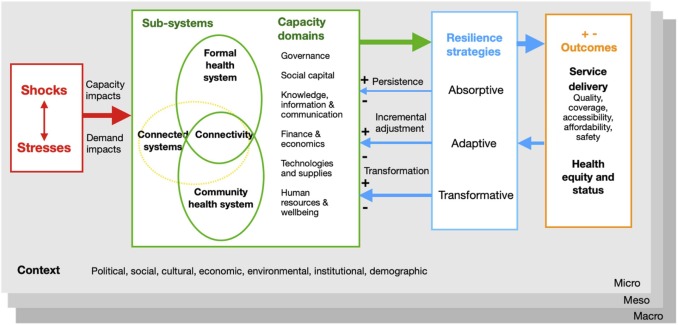
Resilience in interconnected community and formal health (and connected) systems
Read this Social Science and Medicine – Health Systems paper here. [opens new tab]
Abstract
Enhancing the resilience of health systems to expected and unexpected shocks – from COVID-19 to the health impacts of climate change – is becoming a defining challenge of this century worldwide. To date, health system resilience research has focused on formal government health systems, yet emerging evidence points to the importance of families, communities and connected systems (such as disaster management, water, sanitation, social protection and gender disparities) that influence the health status of people, and health system functioning and capacities to respond to shocks. This paper argues that resilience capacities in both formal and community health systems, and connected systems, be considered in health system resilience conceptual frameworks, and that well-established literature on community resilience capacities from diverse disciplines can help frame research on community health system resilience.
Acknowledgement
This article results from the Maintains Programme (on shock-responsive social services) and ReBUILD for Resilience, both funded by the UK government’s Foreign, Commonwealth and Development Office.
Citation
Matt Fortnam, Peter Hailey, Sophie Witter, Nancy Balfour, Resilience in interconnected community and formal health (and connected) systems, Social Science and Medicine – Health Systems, 2024, https://doi.org/10.1016/j.ssmhs.2024.100027
Image: Conceptualises how capacities in interconnected formal and community health systems and connected systems enable resilience strategies in response to composite shocks and stresses, which lead to variable outcomes for service delivery and health and nutrition status of populations